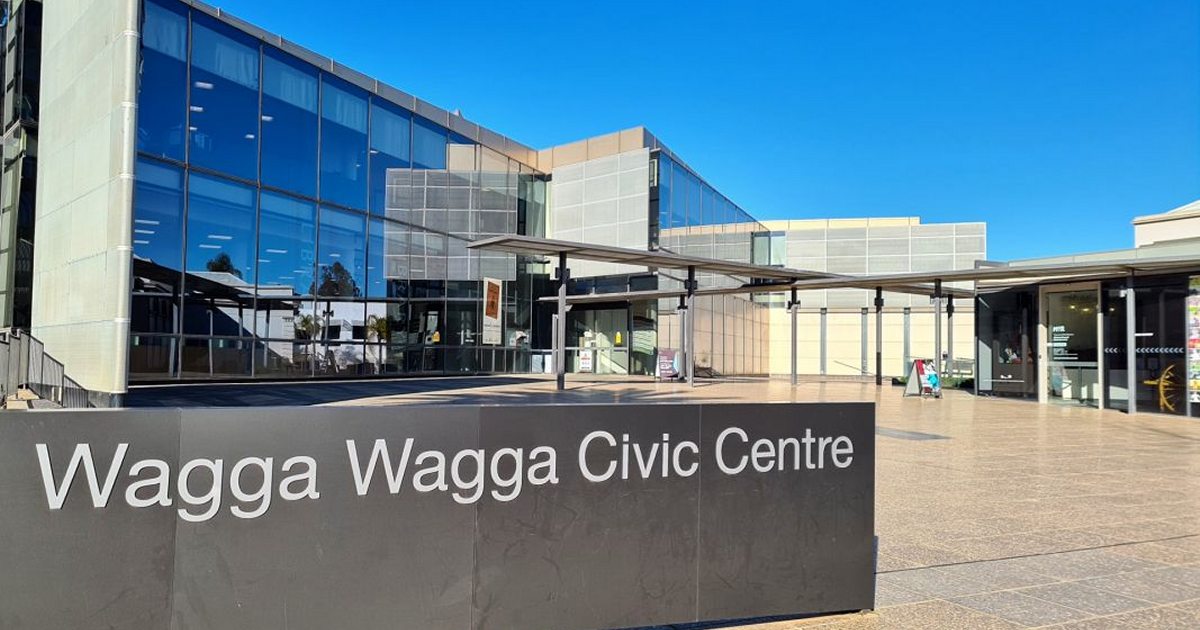Wagga Wagga City Council’s amended Corporate Net Zero Emissions 2040 Strategy is good to go after being adopted on Monday.
Council has previously committed to a corporate target of net zero emissions by 2040 and a community target of net zero by 2050; along with an interim community target of 50% reduction in emissions by 2030.
In terms of its own emissions, Council’s FY2020 carbon footprint was 86,339 tonnes of carbon dioxide equivalent (CO2-e). 80% of this came from landfill waste, but electricity usage was the second largest emissions source; contributing 10%. In FY2020, Council consumed 13,221 megawatt-hours of electricity.
Without any new actions to reduce emissions, there would be some reduction out to 2030 based on current efforts – down to around 80,000 tonnes in that year – but from there it would start creeping up again. And that’s even with NSW grid decarbonisation progress taken into account.
Wagga Wagga City Council’s Corporate Net Zero Strategy presents recommended actions to avoid, minimise and offset emissions.
On-Site Solar Energy’s Potential For Reducing Emissions
With regard to energy, there could be sunny days ahead for solar power at Council that will not only reduce emissions but also save money.
To the point of the Strategy’s release, Council had installed solar power systems at 10 of its facilities with total installed capacity of 235 kW. These systems are (along with installation years):
- Civic Centre: 100 kW (May 2020)
- Livestock Marketing Centre pump: 30 kW (June 2015)
- Alan Turner Depot: 25 kW (May 2010 and June 2012)
- Livestock Marketing Centre: 20 kW (June 2013)
- Glenfield Road Animal Shelter: 15 kW (June 2015)
- RRL Galling Place: 15 kW (June 2018)
- Visitors Centre: 15 kW (June 2021)
- Senior Citizens Centre: 6 kW (June 2015)
- Glenfield Community Centre: 5 kW (June 2015)
- Ashmont Community Hub: 4 kW (July 2015)
These systems were collectively contributing ~2.6% of Council’s electricity demand (~329 MWh annually), based on 2021 electricity consumption data. Most are pretty small systems, and potential exists for upgrading solar panels in those installations. But beyond that, there are a bunch of other buildings and sites that could be hosting solar systems.
The Strategy notes other planned installations include a ~500 kW system at Oasis Aquatic Centre and a ~47 kW system at the Museum of the Riverina (Williams Hill Museum).
All told, Wagga Wagga City Council sites have scope for ~1.51 MW – 1.96 MW of new solar PV systems to be installed, generating an additional ~2,415 MWh to 3,148 MWh of electricity per year – with most of this electricity self-consumed1. Estimated payback on all this would be around 8 years, but this was based solar installation costs at the time of the Strategy’s preparation and an average electricity rate of $0.15/kWh.
No doubt there would be solar installers in Wagga keen to get a piece of this action.
However, that still won’t come close to covering all Council’s electricity requirements. Other opportunities outlined in the strategy include entering into Power Purchase Agreement ( PPA) contracts to supply renewable power for all large sites and streetlights, and the supply of standard power to small sites with an option priced to buy Large-scale Generation Certificates (LGCs). Furthermore, there’s the low-hanging fruit of energy efficiency and the construction of a landfill gas to-energy plant (capacity around 120kW) is another opportunity.
Further details on these and other opportunities to help Wagga Wagga City Council achieve its emissions reduction goals can be found in the Corporate Net Zero Emissions 2040 Strategy.
Footnotes
- There’s potential to also implement ~269 kWh of battery storage across sites with low or intermittent electricity consumption. ↩


 RSS - Posts
RSS - Posts



Speak Your Mind